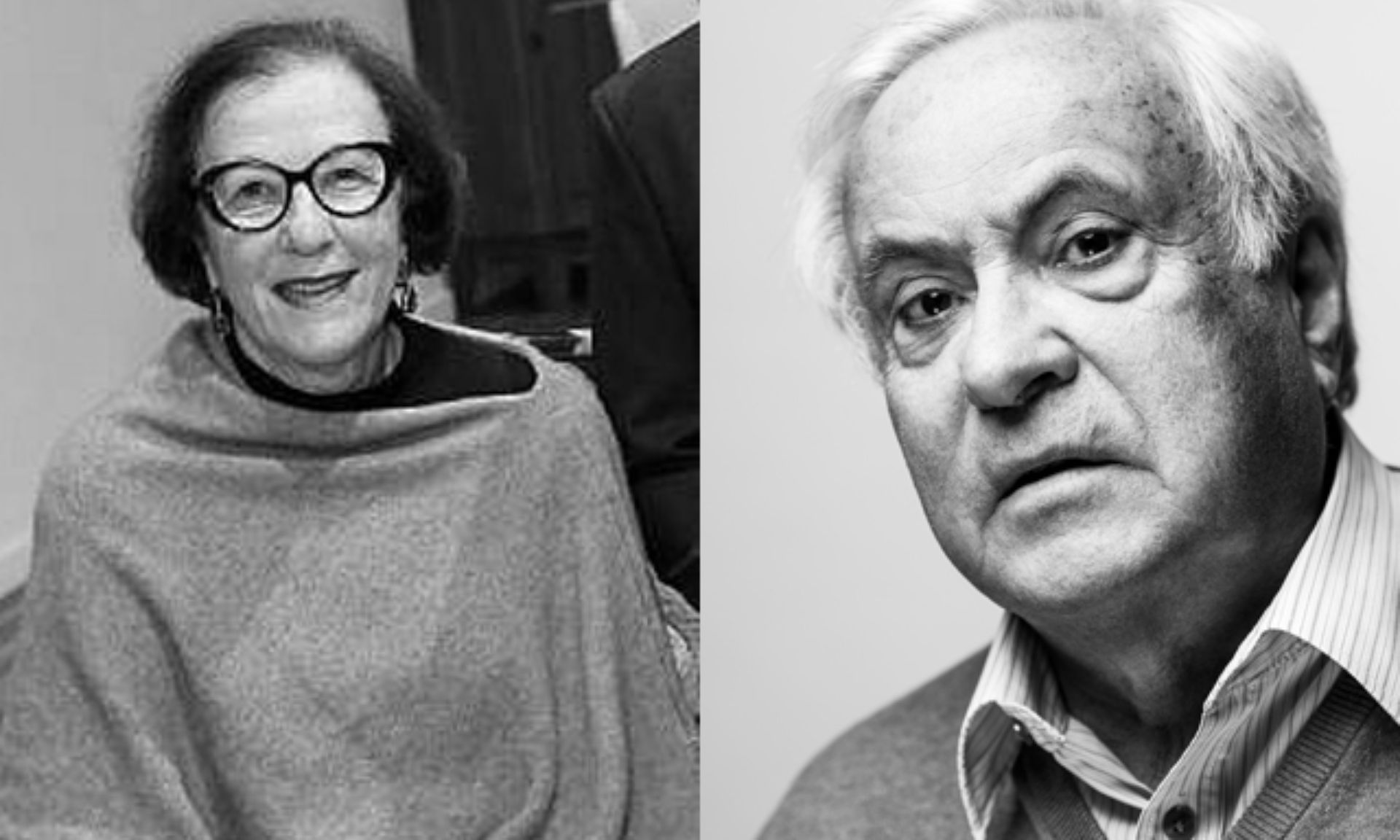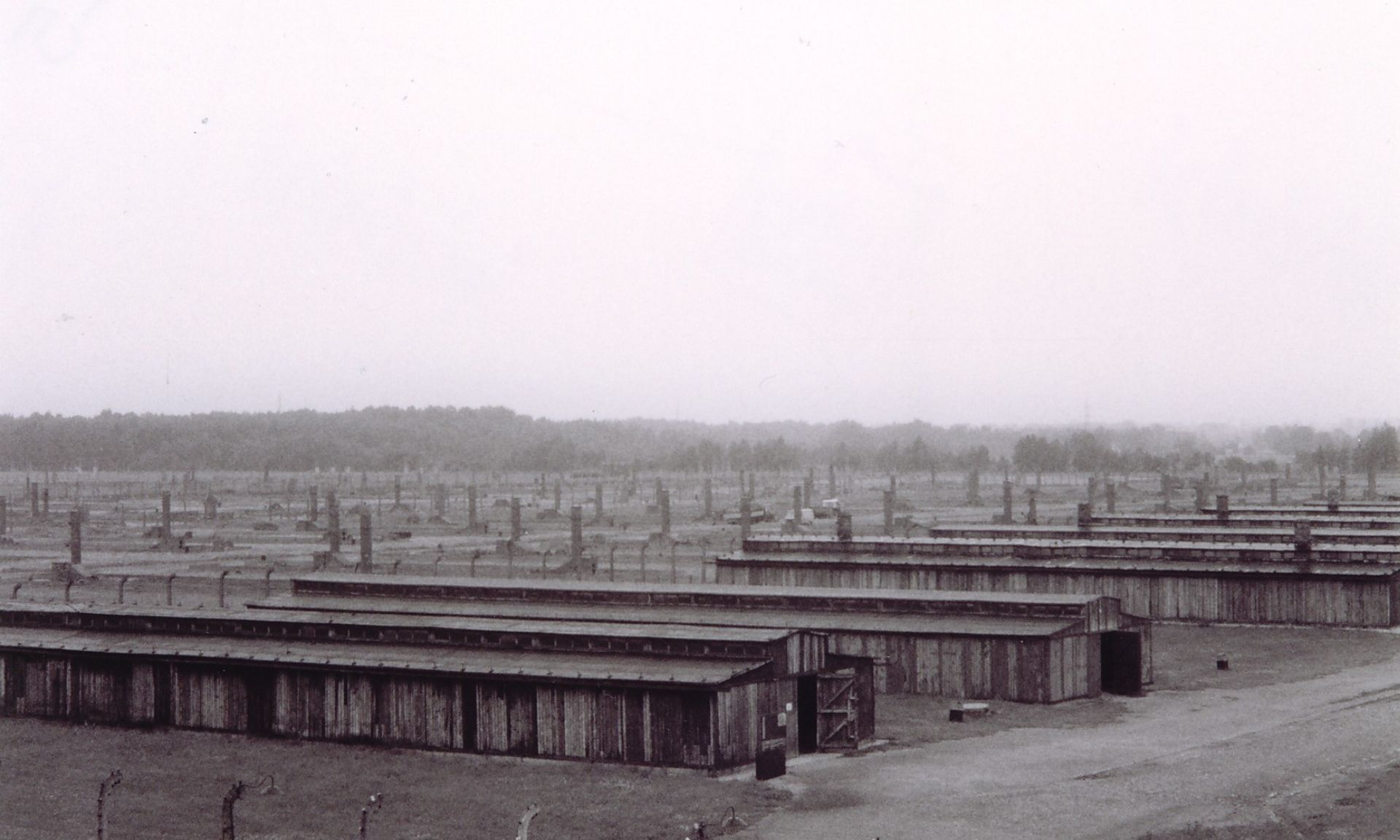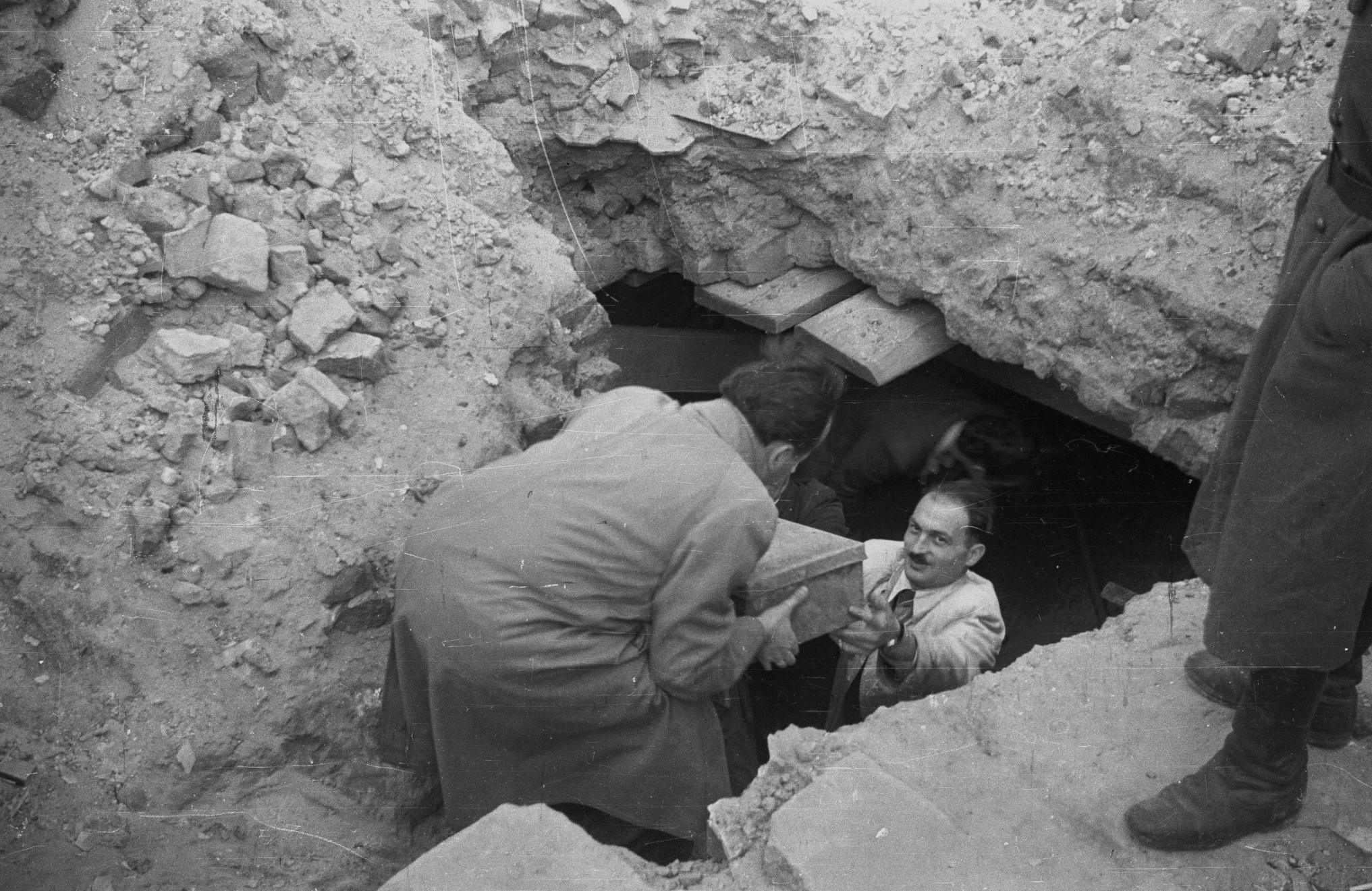Charles German, who has previously guided at the museum, began sharing his story with students this term. Charles was born in Czernowitz, Romania, in 1936. He was five years old when his family was deported to the camp of Mogilev-Podolski in Ukraine. Conditions were harsh, food was scarce and Charles’ family slept in a small area under a table. But the family was together.
While his parents worked building roads, they were given meagre food rations which they covertly shared with Charles. But they were caught by an officer who took Charles away when he discovered what was happening. This officer secretly fed Charles in a guard tower and continued to do so until he one day disappeared.
Upon liberation, Charles and his parents managed to return to Czernowitz with the assistance of local farmers before making their way to a Displaced Persons camp in Italy from where they hoped to migrate to British Mandate for Palestine. Charles has wonderful memories of the Shlichim in the camp teaching the children Hebrew and labouring skills to prepare them for their arrival in Israel. Unfortunately, his parents’ marriage broke down.
Charles’ mother remarried an Auschwitz survivor who had obtained sponsorship to come to Australia. Despite a happy life in Australia, Charles struggled with his childhood memory fragments until he met two men who were also imprisoned in Mogilev as children. This serendipitous meeting served to confirm and explain many of Charles’ memories and gave rise to an immeasurable bond between the three.
Gilah Leder (Vanderhoek) was born in 1941 in The Netherlands. When things became increasingly worse for the Jews of The Netherlands, Gilah’s parents made the courageous and heartbreaking decision to send her to live under an assumed name with a non-Jewish family of nine who they didn’t know. She was only 16 months old.
Giiah’s foster family were devout Catholics who could not stand idly by while their Jewish neighbours were being rounded up and deported. They were a loving family and Gilah knows she was fussed over by all her foster siblings who were excited to have a ‘new sister’.
At three and a half, Gilah was reunited with her biological parents and that was when her real trauma began. She had become attached to her foster family while her emotionally bruised parents were essentially strangers. Remarkably, Gilah’s mother understood the attachment she had to her foster family and arrangements were made for Gilah to return to stay with them during school holidays. Her parents allowed for a continued relationship with the foster family, which remains until this day. The family was officially recognised as Righteous Among the Nations in the 1980s.
Gilah’s family moved to Australia and she made the best of the educational offerings available to her, eventually becoming a professor of education. She has been involved with Courage to Care for a number of years and we are thrilled to have her on board at the MHM.
Melanie, Education Officer



